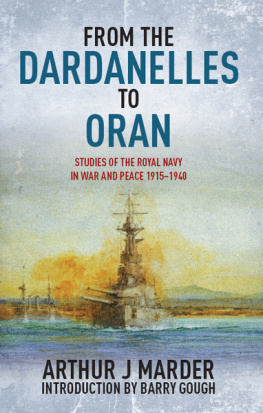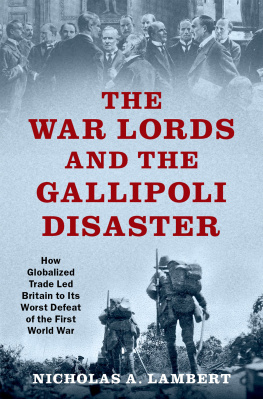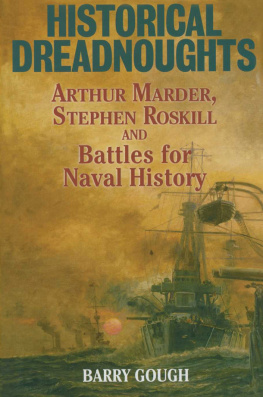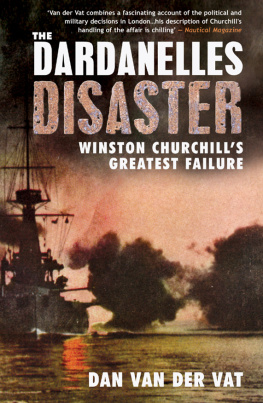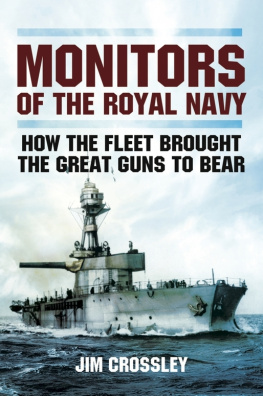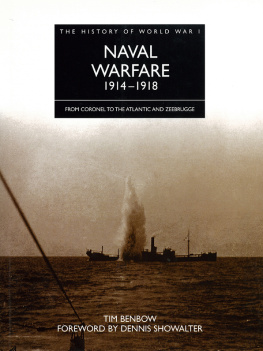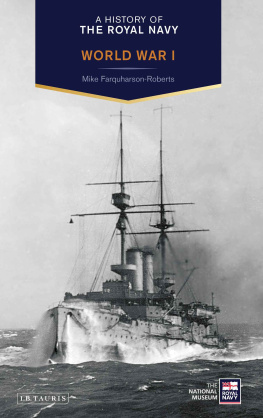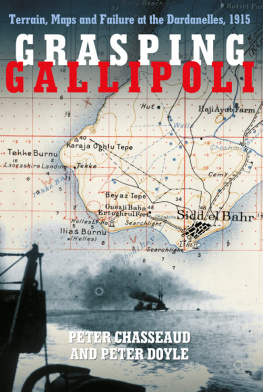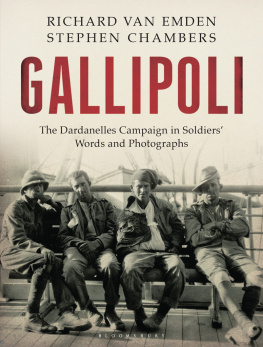ARTHUR J MARDER was a meticulous researcher, teacher and writer who, born in 1910, was to become perhaps the most distinguished historian of the modern Royal Navy. He held a number of teaching posts in American universities and was to receive countless honours, as well as publish some fifteen major works on British naval history. He died in 1980.
BARRY GOUGH, the distinguished Canadian maritime and naval historian, is the author of Historical Dreadnoughts: Arthur Marder, Stephen Roskill and the Battles for Naval History, and contributed new introductions to Marders five-volume history of the Royal Navy in the First World War, From the Dreadnought to Scapa Flow, all recently published by Seaforth Publishing.
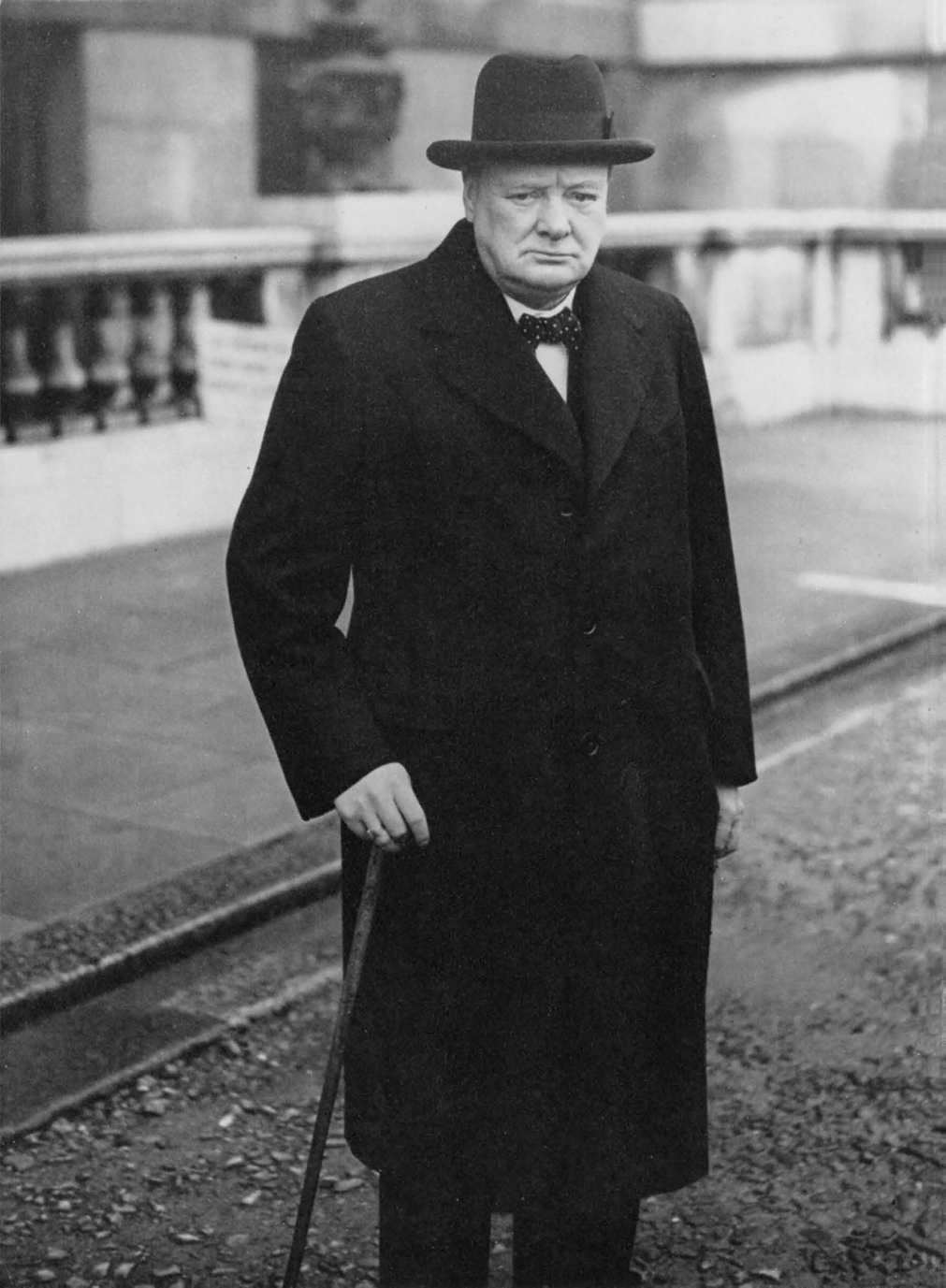
Winston Churchill, First Lord of the Admiralty, 14 October 1939
Copyright Arthur J Marder 1974
Introduction copyright@Barry Gough 2015
First published in Great Britain in 2015 by
Seaforth Publishing,
Pen & Sword Books Ltd,
47 Church Street,
Barnsley S70 2AS
Published and distributed in the
United States of America and Canada by the
Naval Institute Press,
291 Wood Road, Annapolis,
Maryland 214025034
British Library Cataloguing in Publication Data
A catalogue record for this book is available from the British Library
Library of Congress Control Number: 2015938192
(UK) ISBN 978 1 84832 252 3
(US) ISBN 978 1 59114 585 1
EPUB ISBN 978 1 47384 925 9
PRC ISBN 978 1 47384 926 6
All rights reserved. No part of this publication may be reproduced or transmitted in any form or by any means, electronic or mechanical, including photocopying, recording, or any information storage and retrieval system, without prior permission in writing of both the copyright owner and the above publisher.
Printed and bound in Great Britain by CPI Group (UK) Ltd, Croydon, CR0 4YY
To
the memory of
JOHN CRESWELL
Captain, R.N.
gentleman, scholar
and dear friend
Introduction
L ONG will Arthur Jacob Marder (19101980) be remembered for his five-part From the Dreadnought to Scapa Flow: The Royal Navy in the Fisher Era, 19041919 (original edition 19611970; reprinted by Seaforth Publishing, 20132014, with introductions for each volume by myself). That work is today classified by the naval historical profession as core history, although well might it be regarded (across the larger canvas of historical enterprise) as a classic of historical research and writing. Marder came to the Admiral Sir John Fisher era of British naval history, 19041920, when the official documents were finally released to him. In the meantime, he had published The Anatomy of British Sea Power: A History of British Naval Policy in the Pre-Dreadnought Era (1940; English edition, 1941). Then he had edited the diaries of Admiral Sir Herbert Richmond, Portrait of an Admiral: The Life and Papers of Sir Herbert Richmond (1952). He also produced three volumes of Fishers edited letters Fear God and Dread Nought. Taken altogether these formed a significant contribution to the corpus of history especially on the lead up to the First World War and the direction of that conflict at sea, and in doing so they raised the standard of naval history. That these books were written by an American provided not a little amusing comment by the British. And that his last name carried the initial M as did that of US Admirals Alfred Thayer Mahan and Samuel Elliott Morison, likewise attracted idle chatter.
By 1970 and the time Marder had come to the completion of his From the Dreadnought to Scapa Flow he had been employed on historical enterprises for almost four decades. And as of that year he knew in his inner heart that he was exhausted, as his correspondence with Oxford University Press discloses. His spirited and furious production of these several works completed at breakneck speed, his other academic obligations (for he carried heavy teaching obligations, graduate and undergraduate), his mid-career switch in university affiliation from Hawaii to Southern California, and then a climactic, triumphant year at Baillol College, Oxford, as Eastman Professor spelled an accumulation of pressures amounting to a personal crisis that he could not ignore. Exhausted and perhaps in despair, he wrote to his publisher, Geoffrey Hunt, at Oxford University Press and said he could do no more.
The ever solicitous Hunt decided to leave Marder well enough alone and to await the course of events. Sure enough in early April 1971 he received a letter from Marder in sunny California announcing that he had had further thoughts. I was deadly serious a year ago, and in my last letter, when I told you that I had written my last book. As he now explained, no subject appealed to him sufficiently: the interwar period would have been the logical thing to do, that is till [Captain Stephen] Roskill moved in. (Entre nous, Vol. I of his Naval Policy [Between the Wars] is a horror. Still he has pre-empted the period.) Then, Marder went on, he needed more time for his teaching and for his family. However, if Hunt were willing to publish a different sort of book, Marder was prepared to explain what he had in mind. I could be persuaded to do a book of essays and articles, he said, and by these he meant a mix of published and unpublished pieces. He gave a long list of possibilities, including a seminal article on early Japanese seapower that he had published in the American Historical Review in 1945, based on some Japanese materials. Another prospective item was his delightful and (still) unpublished That Hamilton Woman, all about Horatio Lord Nelson and Emma Hamilton, an engrossing story of that ever so promising book, not yet written, The Women Behind the Fleet.
Such was Marders reputation and such were the sales of his books that Hunt jumped at the prospect. Hunt had rich pickings from which to choose. In the end, these five were to make up the new volume: 1. The Dardanelles Revisited: Further Thoughts on the Naval Prelude; 2. The Influence of History on Sea Power: The Royal Navy and the Lessons of 19141918; 3. The Royal Navy and the Ethiopian Crisis of 19351936; 4. Winston is Back: Churchill at the Admiralty, 19391940; and 5. Oran, 3 July 1940: Mistaken Judgement, Tragic Misunderstanding, or Cruel Necessity? As is explained below, each of the five has a history of its own, and only the last of these (and the major) was truly original in the sense that it had not appeared before in earlier form. That having been said, each of the five constitutes a commentary on the Royal Navy in those very circumstances that tested its very mettle, during war or in phases of peace. Because Marder was fascinated by the war behind the war, the last three chapters give insights into the relationships of statesmen and admirals, naval administration, and the higher management of war. As to the first two, and with which this engaging book commences, Marder was returning to his earlier preoccupations, in turn: What lessons had the Admiralty and the Navy learned from the First World War? What had separated British forces from a victory at the Dardanelles?
Marder re-examined the Dardanelles/Gallipoli campaign in the period mid-February to late April 1915 that is, from its inception to when landings took place at Cape Helles and Anzac. Two situations presented themselves to the Navy to force the Straits and, as a consequence, dominate the Bosporus, threaten Constantinople and, it was to be hoped, drive Turkey out of the war. Had, first, the enemy forts been destroyed at the Narrows entrance the enemy minefields might have been swept and the unrestricted fairway opened. The tragedy here lay in the fact that seaplanes were unable to render effective assistance in spotting the fall of shot from the powerful HMS
Next page
